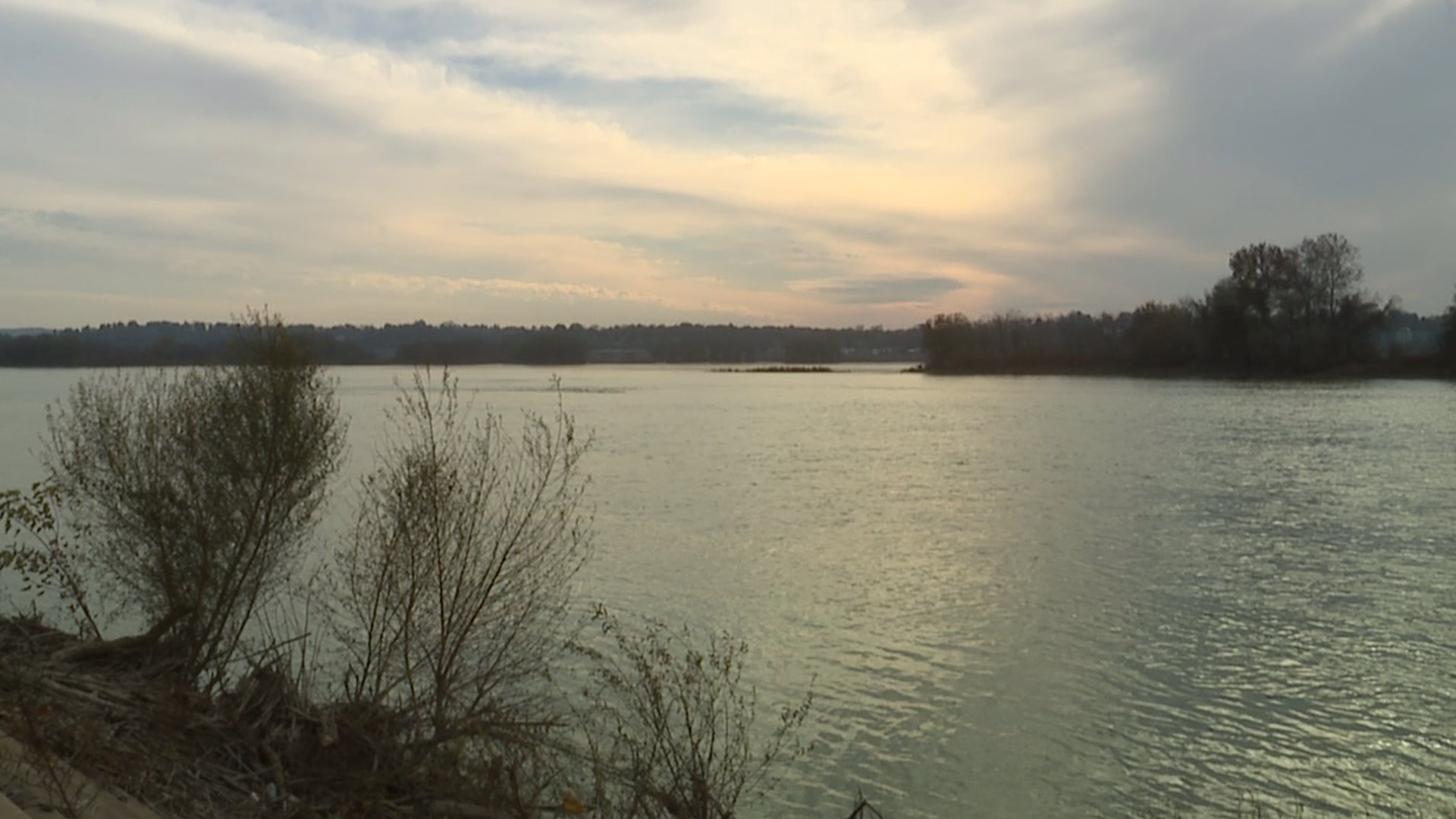HARRISBURG, Pa. — The Environmental Protection Agency and the Pennsylvania Department of Environmental Protection on Monday filed a consent decree in federal court that will require Capital Region Water to create an effective long-term control plan by Dec. 31, 2024, to reduce sewage overflows into the Susquehanna River, according to two non-profit environmental groups dedicated to monitoring pollution levels in the river and public health.
Harrisburg has a more than century-old combined sewage and stormwater system that overflows more than once a week, on average, into the Chesapeake Bay’s biggest tributary, the Lower Susquehanna Riverkeeper Association and the Environmental Integrity Project said in a press release issued Monday.
The two groups claim that monitoring for fecal bacteria along the Harrisburg waterfront last summer found that 56 percent of samples had levels of E. coli that would be unsafe for swimming or water-contact recreation.
The EPA and the Pennsylvania Department of Environmental Protection in 2015 sued Harrisburg and Capital Region Water over the chronic overflows, but the water authority failed to make any progress in fixing the problem, the environmental groups said.
That prompted a legal intervention by the Lower Susquehanna Riverkeeper and Environmental Integrity Project in 2021.
Then today, EPA and DEP issued a new deadline, backed with threats of penalties, the two groups said.
“Given Harrisburg’s long history of failing to address this obvious public health hazard, it is critical that EPA and DEP hold Capital Region Water strictly accountable for compliance with the modified consent decree’s deadlines and terms,” said Ted Evgeniadis, a spokesperson for both groups. “Pennsylvania must step up and help Capital Region Water with funding to end these sewage overflows and avoid future delays. No more extensions or modifications can be given, and any violation of the deadlines must trigger the immediate application of penalties.”
Potential penalties in the modified consent decree filed in court today range up to $3,000 per day, depending on the violation, the environmental groups claim.
The modified consent decree gives Capital Region Water a deadline of December 31, 2024, to submit to EPA for the agency’s approval a revised and updated long-term control plan for controlling overflows that conforms to the EPA’s requirements for combined sewage and stormwater systems.
“This is an opportunity for Harrisburg to come up with a real solution to the sewage overflow crisis in the state capital through long-needed infrastructure improvements,” said Jen Duggan, Deputy Director of the Environmental Integrity Project. “Cities across the U.S. with antiquated sewage systems have solved this problem, and Harrisburg can, too.”
The Environmental Integrity Project and Lower Susquehanna Riverkeeper released a new report Monday, “Stopping Sewage Overflows in Harrisburg,” that provides specific examples of cities large and small, poor and wealthy, across the U.S. that have solved similar combined sewage overflow problems over the last two decades.
For example, the groups said, Saginaw, Michigan -- a city of 44,000 people, which is smaller than Harrisburg's and with a higher poverty rate – built a $110 million series of underground retention basins during the 1990s that temporarily held sewage mixed with stormwater during rainstorms, until the wastewater can be treated.
Another example is Bremerton, Washington, which halted its sewage and stormwater overflow problem by investing $50 million building separate sewer lines and pumping stations, the report says.
Boston and Portland are also featured in the report as cities that have successfully tackled the same combined sewage overflow problems as Harrisburg, the groups said.
For the last four summers, the Lower Susquehanna Riverkeeper has been monitoring fecal bacteria levels along the Harrisburg waterfront, including near outfalls leading from the State Capitol Complex and Governor’s Residence.
The group found that last summer, 40% of 20 samples taken just downstream from the outfall near the Governor’s Residence had unsafe levels of E. coli bacteria, and 70% of the 20 samples taken near the outfall near the State Capitol Complex had levels of fecal bacteria that would be unhealthy for swimming or water contact recreation.
Overflows from Harrisburg’s outfalls average about 800 million gallons of sewage and stormwater a year, the environmental groups claim. They totaled 1.1 billion gallons in 2021, 584 million gallons in 2020, 900 million gallons in 2019, 1.4 billion gallons in 2018, 899 million gallons in 2017, and 789 million gallons in 2016, according to reports from Capital Region Water.
“Capital Region Water has not wavered from its commitment to clean water in and around Harrisburg,” said Capital Region Water CEO Charlotte Katzenmoyer. “The compliance milestones and projects identified in the Modification to the Partial Consent Decree will ensure compliance with wet weather targets, but it’s not the end goal. We encourage public comment now and will continue to provide various opportunities for the public to provide input on a larger plan to control combined sewer overflow events, which are a symptom of our dated, aging infrastructure.”
Capital Region Water said the modification to the Partial Consent Decree is drafted to address alleged violations of the Clean Water Act and Pennsylvania’s Clean Streams Law, primarily due to sewer overflows and the discharge of polluted stormwater, and incorporates steps that are being taken and will be taken to achieve baseline conditions for an acceptable Long-Term Control Plan. Capital Region Water added its goal remains the same – improved water quality and implementation of defined compliance measures.
To submit an environmental complaint to the DEP, click here.

